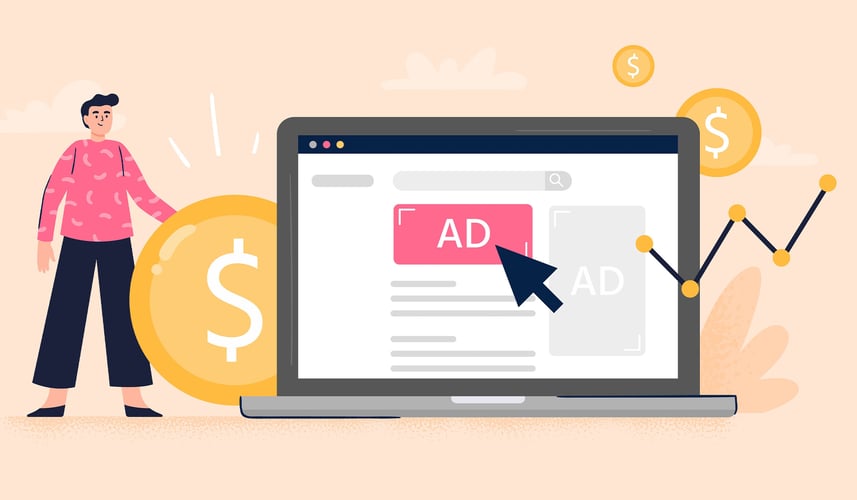Episode 45 - Facebook vs. Google: How to Leverage Online Reviews for Your Bank or Credit Union


Don't Miss An Episode, Subscribe Now

Online reviews are important when it comes to people researching your institution and are considering applying for a new account or loan. So what are the benefits of Facebook and Google reviews? The FI Grow team discuss current best practices and how to leverage your bank or credit union's online reviews to enable new business.
Transcription:
If you're looking for best practices for your bank or credit union, join us while we talk all things sales, marketing, and strategy for financial institutions. Let's make it happen with FI GROW Solutions..
Meredith Olmstead:
Hi there. I'm Meredith Olmsted, founder and CEO of FI GROW Solutions. We are a digital marketing and sales consulting agency, and we work exclusively with banks and credit unions. And I am here with Ida Burr, our Digital Ads Manager. Say, hi, Ida.
Ida Burr:
Hi, everyone.
Meredith Olmstead:
So Ida and I were just having a chat about online reviews. And, specifically, we were really talking about the difference between Facebook and Google. And I was like, "Hold on, let's press record on this." Because I definitely think this is a topic that we need to share with our wider audience. So, basically, we were trying to understand, or trying to understand and explain to clients, the difference between reviews on social media. Specifically, we were talking about Facebook and Google reviews, and the benefits and the limitations for each of those. So really trying to understand how to leverage your online reviews. Because they're super, super important, when it comes to people researching your institutions and thinking about applying for a new account, or opening a loan, or applying for a loan.
So it used to be that we were super, super gung ho about social media reviews. And we always told all of our clients, "You have to leave your comments on. You have to leave the ability to post reviews on. It's really, really important for you to be able to engage with your audience on social media." But you were just explaining to me that things have changed over the last six months or so. So tell me a little bit more about that?
Ida Burr:
Yeah, so definitely, in the past, we would tell clients, "Leave them on. If they're not going to be posting on your Facebook, they're going to find somewhere else to post it." We're very regularly monitoring Facebook, so that's the place we want them to do it. It's easy for us to respond, it's easy for us to find it. Sometimes, they go and write reviews on platforms you're not even monitoring, and it's hard to respond to it publicly. But, now, what we're seeing is probably about 99% of reviews that are coming through are spam. They're these weird, "Call my WhatsApp," or whatever it's called, "number and here's some Bitcoin lingo." Or it has nothing to do with the bank at all, and it's a scam.
Meredith Olmstead:
Okay. And you're talking about Facebook reviews?
Ida Burr:
Yes, those are on the Facebook reviews now.
Meredith Olmstead:
Okay. So couldn't they just report these, or comment on them, or take them down?
Ida Burr:
That's the thing about the Facebook reviews is the only way to get them down is if you report them. There's no way to delete them. And, lately, we've been reporting these. And Facebook is coming back saying they're not going against any community guidelines, and they're not taking them down.
Meredith Olmstead:
Okay. So it's spam reviews, you report them to Facebook, they don't get involved, or Facebook support really won't respond. Or you're getting... I know you said you were getting these form responses, like, "This doesn't violate our policy," or whatever. It's not even a person responding. And so you're not able to get these. So you have all these spam reviews up there with no way to... So you could respond to them on Facebook, but you can't take them down. So it just looks like garbage.
Ida Burr:
Yeah. And it looks good on your page, because it looks like you have 55 five star ratings. But when people go to look at it, it's all this spam. And either one side of it is, they're going to be confused, and wonder what the person's talking about. Or the other, they're going to feel like they were deceived because all these reviews aren't even real. So that's one of two options that's going to happen now.
Meredith Olmstead:
All right. But we know that that online reviews are still really important. So where should marketers at banks and credit unions be focusing then? If they're not going to drive Facebook reviews, what do they do?
Ida Burr:
Yeah. So, right now, there's a way to turn off the reviews for Facebook. We suggest doing that. And the big thing now that we're pushing a lot of our clients towards is the Google reviews. So making sure you have your Google My Business account set up. You have all your locations claimed. And you are monitoring that regularly for incoming reviews.
Meredith Olmstead:
Okay. And I know that you can actually... Because we've done this for clients in the past. You can actually get links, once you own your pages, you can go through your Google My Business page, and you can actually get the link to send people to leave you a review at that location. And so, when's the best time for asking people to leave reviews?
Ida Burr:
So anytime, on Facebook, for example, so your reviews are off, but say somebody comes and comments like, "Oh, I was just at this branch. X, Y, Z happened. I was able to get a loan. Thank you, guys," whatever. You can reach out to them individually. Or if you have some kind of follow-up nurture campaign with your email-
Meredith Olmstead:
Yeah, or like an onboarding.
Ida Burr:
... of new members. Yeah, exactly. Like an onboarding or something like that. You can send people there with the link in the email.
Meredith Olmstead:
Okay. And for Google reviews, are you seeing spam there?
Ida Burr:
No. I don't think I've had a single issue with spam comments in the reviews. I think they have a lot stricter criteria, when it comes to creating an account, and having an account that has the ability to leave these reviews. And from past experience with other issues, Google is definitely more responsive with taking down things that are spam. We had an issue with a client, somebody tried to hijack contests they were doing. And they had a fake Google posted landing page. And we reported it, and it was taken down fairly quickly, compared to Facebook. It could take weeks for them to respond. And then they say, "Oh no, we're not going to take it down."
Meredith Olmstead:
Yeah, okay. The other thing I know is that I know Google reviews... Well, two real benefits. Number one, because Google is basically the main player in search, when you're searching for a location; or for a branch; or for an institution, if you put in their information and they have brick and mortar locations that have reviews, or they have Google My Business pages that have reviews, those pop up right in the search results page, which is nice. So you're never going to see Facebook results from reviews popping up on a search results page. But Google reviews do. So that shows, right immediately, it shows credibility for your institution, if you've got good reviews. But, also, I think, the more reviews you get for your different pages and your different locations, it helps drive more local search results in the future, organically. So it's going to help your search results down the road, if you're driving more and more reviews. Okay.
Ida Burr:
Yeah. And I think, honestly, just user behavior is changing. People don't really go to Facebook pages anymore to leave reviews. I think they tend to go to Google organically now to leave reviews when they want to. So it just seems having the Facebook on is more problematic than anything.
Meredith Olmstead:
Yeah. We had another recent problem with an institution down in Georgia, who had a disgruntled employee posting personal information via a secret Facebook page onto anonymous Facebook reviews. And it was a whole huge mess because we couldn't take it down immediately, even though it violated policy. And it had full names and all of these libelist claims, basically. So all we could do was report it to Facebook and hope that it got taken down. At the end of the day, the person who posted the review got found out through HR and other efforts offline. They took the review down before Facebook even responded. And so it was really not a great situation because you can't really control the visibility of those posts, like you said. So it can lead to some situations that... In the past, it could have caused that as well. But the benefit of having reviews live outweighed the risk of having an occasional situation like that happen.
But, now, it seems like the benefits really are going away, and the risks are definitely still there. All right, awesome.
Ida Burr:
Absolutely.
Meredith Olmstead:
Well, so the biggest takeaway is focusing on Google reviews and Google My Business pages, and moving away from Facebook reviews. And possibly even turning that feature off on Facebook pages. All right. Thanks so much, Ida. All the information is super useful. If you all are interested in other best practices for marketing for your banks and credit unions, please visit us at figrow.com. We have lots of other podcasts there with great ideas and tips and tricks. And, otherwise, let's just all get out there and make it happen.








Blog comments